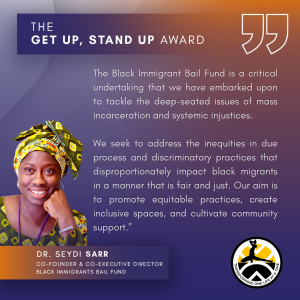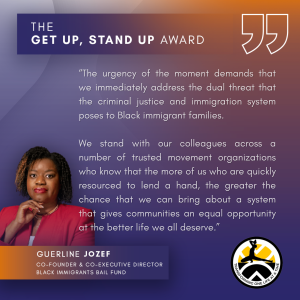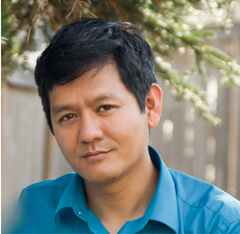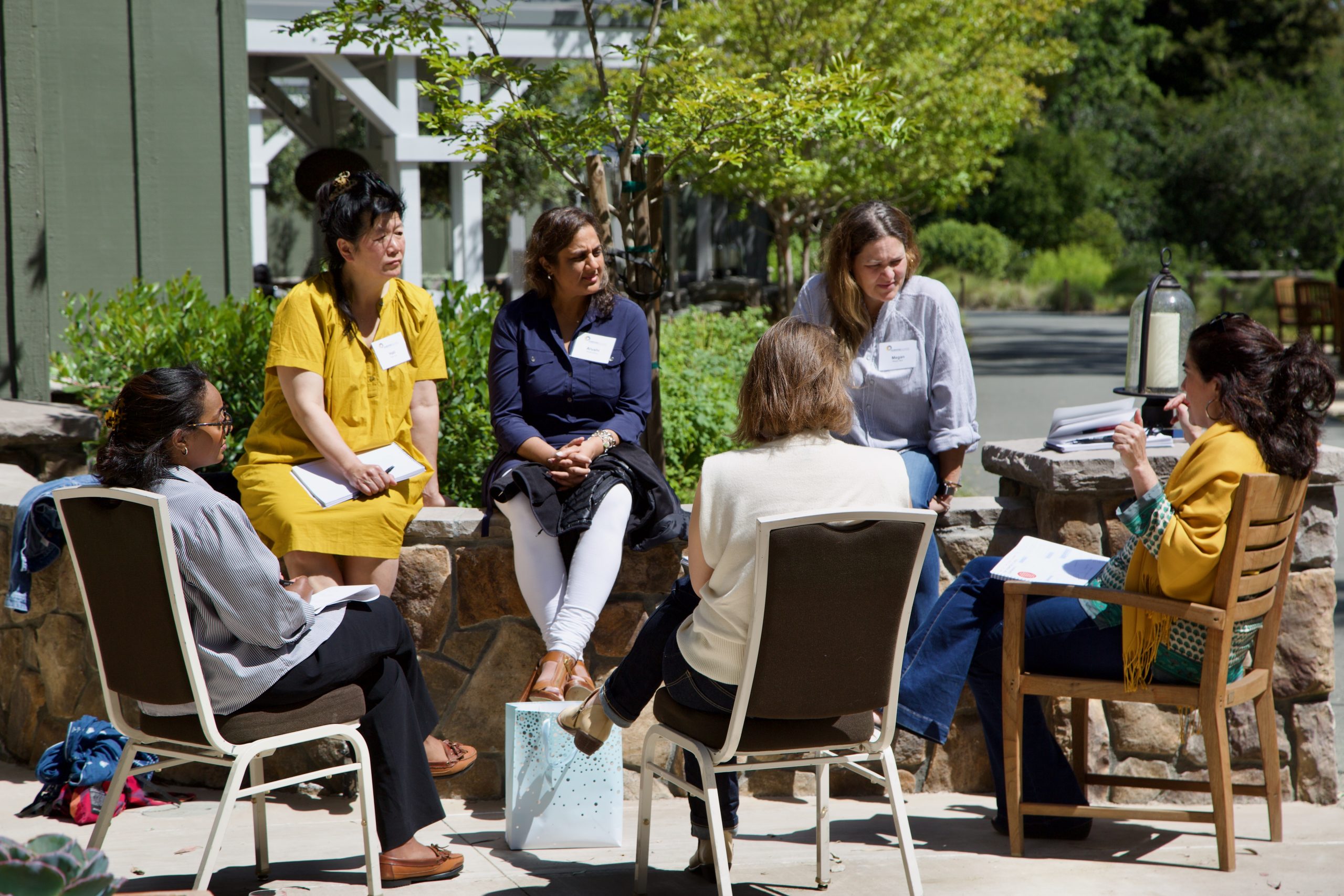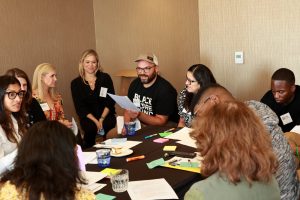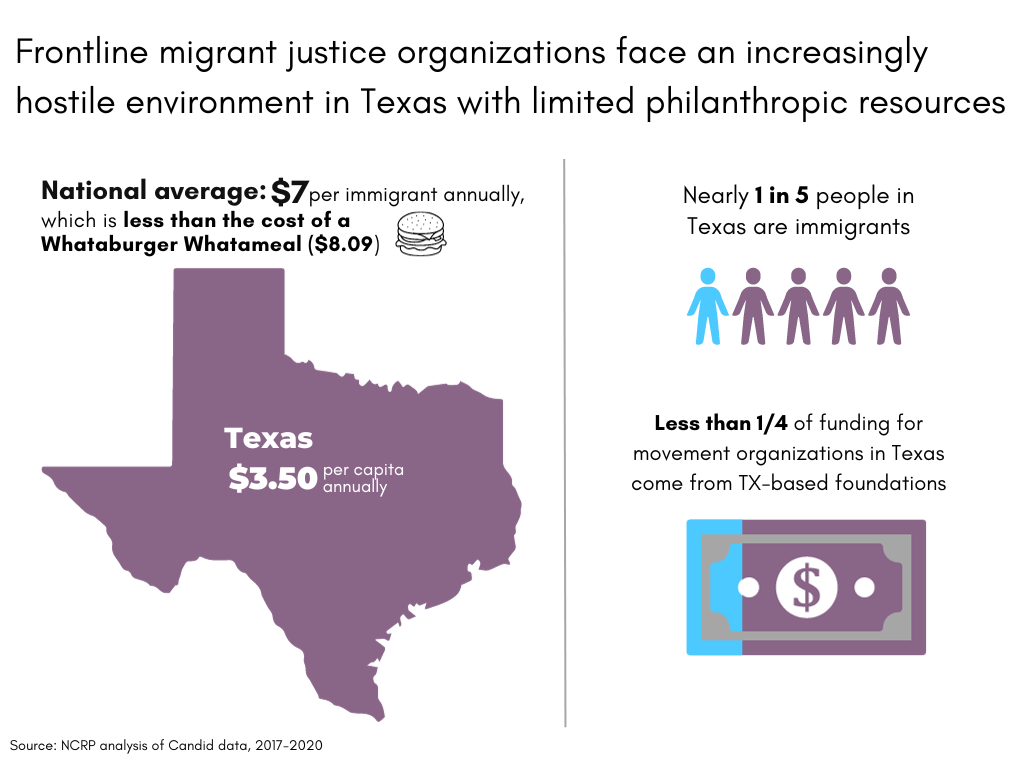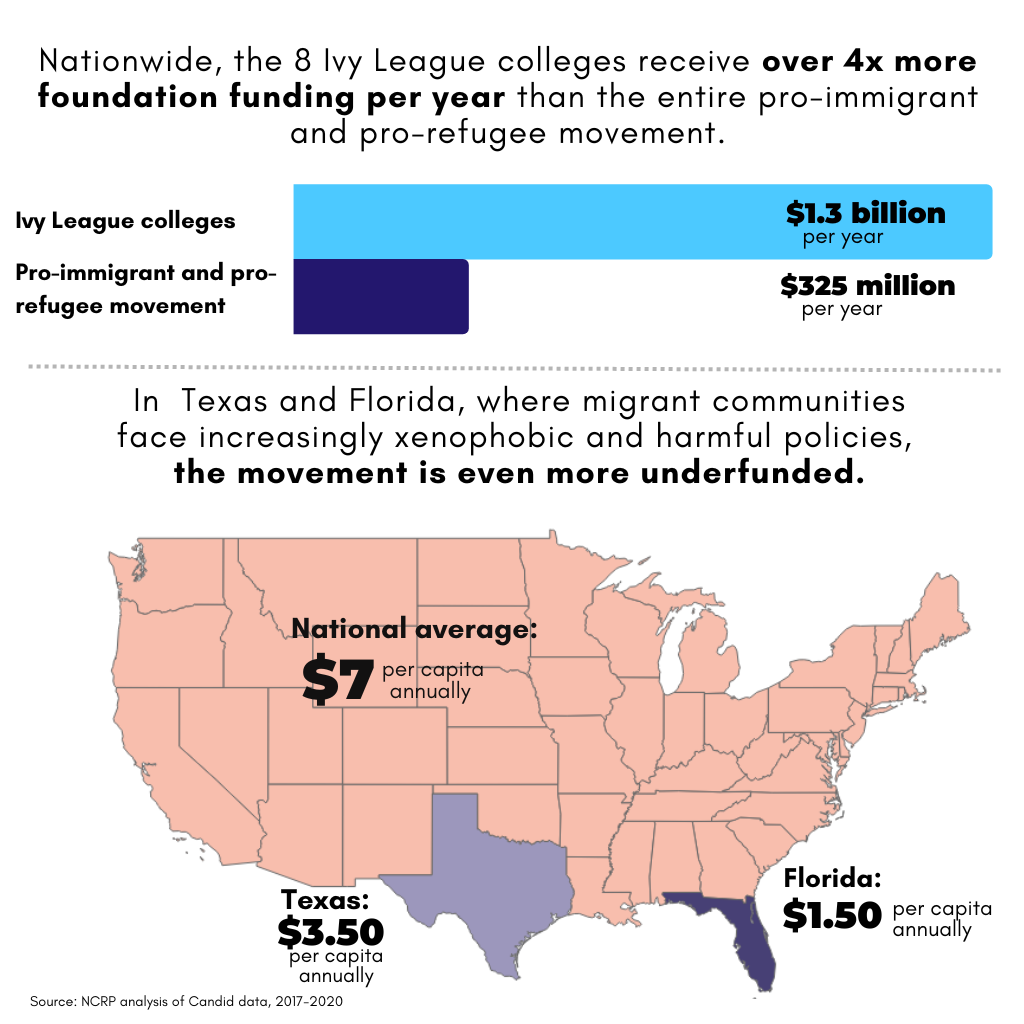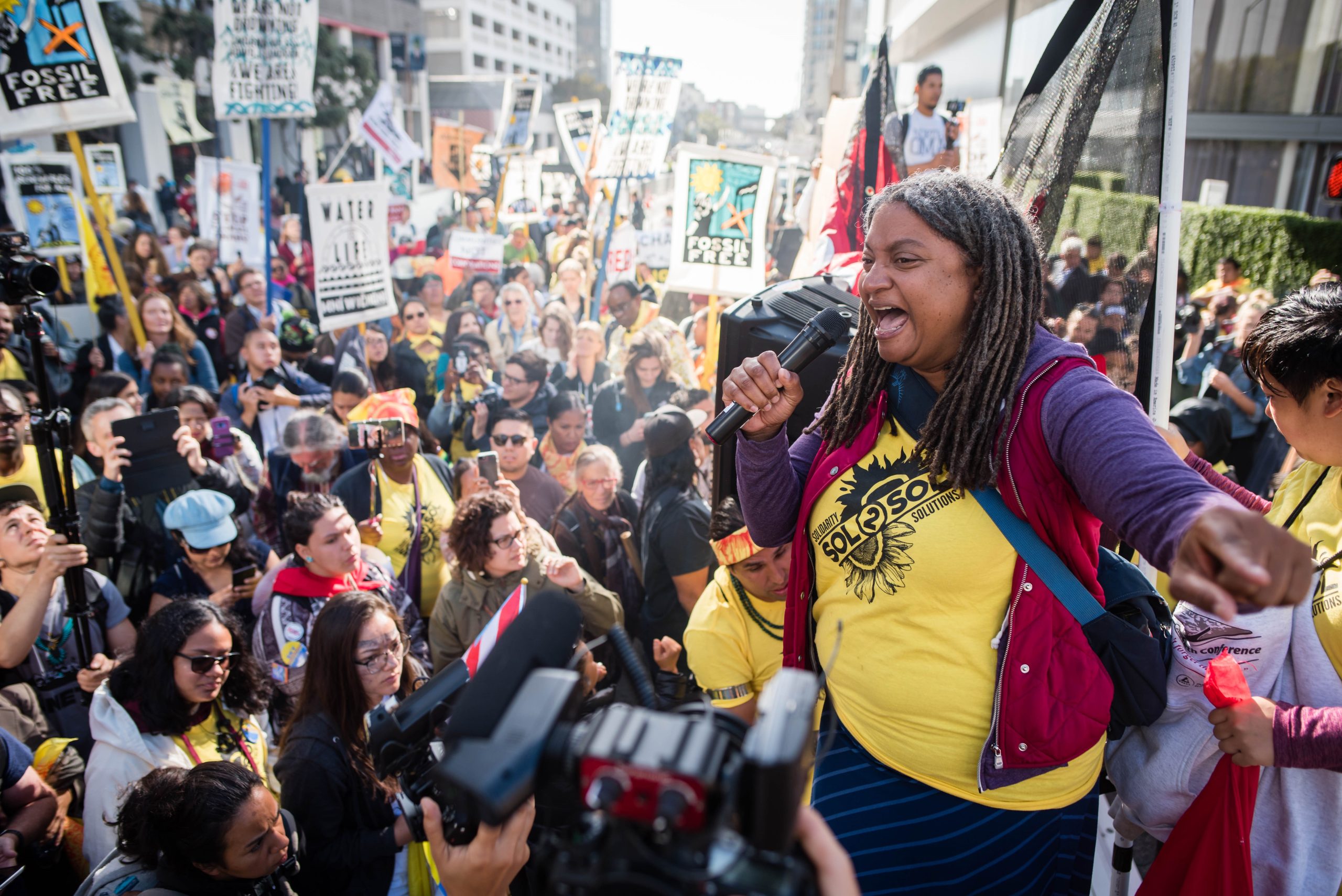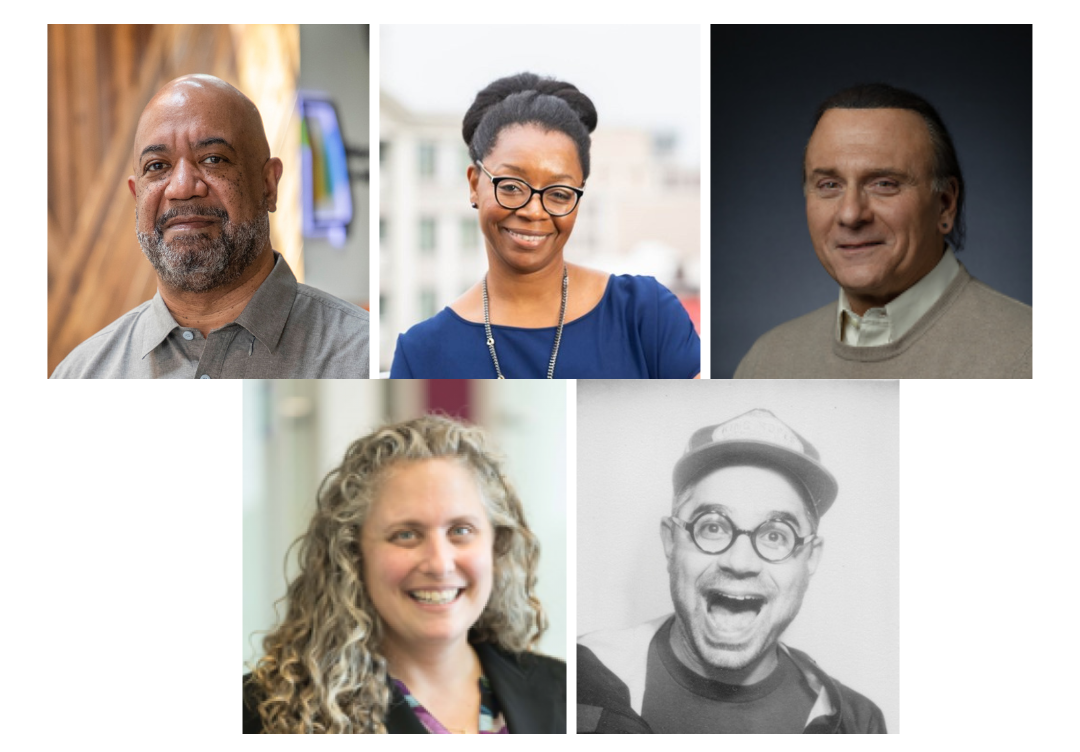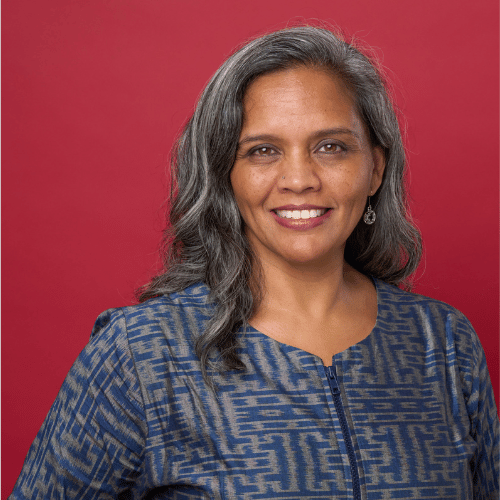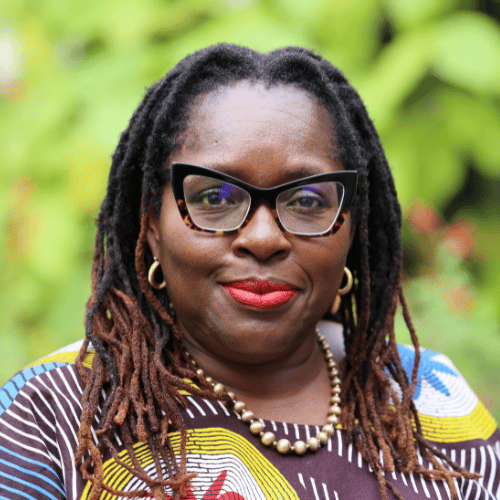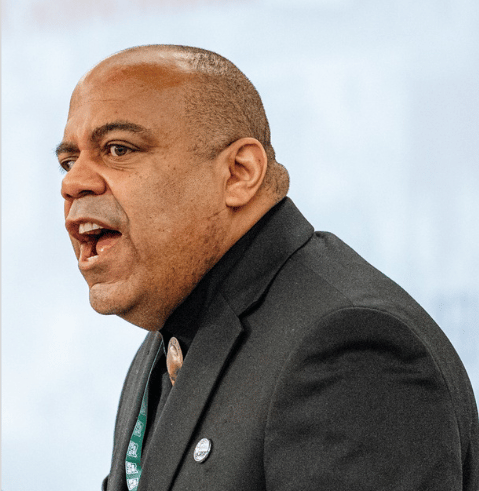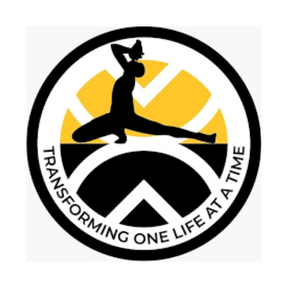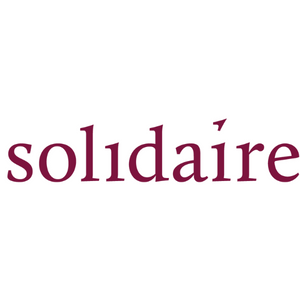NCRP Identifies Philanthropy’s
Best & Boldest Leaders in Announcing
the Winners of Its 2023 Impact Awards
Selection Committee of 12 philanthropic and nonprofit leaders spotlights innovative and steadfast commitment of the Raikes Foundation, the Solidaire Network, the Black Immigrants Bail Fund, New York Women’s Foundation and NonProfit AF’s Vu Le to challenging their colleagues to better support movement groups.
Washington, DC –This week, the National Committee for Responsive Philanthropy (NCRP) proudly announced the winners of its biennial celebration of philanthropy’s best actors, the IMPACT Awards.
The Raikes Foundation (“Changing Course” Award for Incorporating Feedback), the Black Immigrants Bail Fund run by Haitian Bridge Alliance (HBA) and African Bureau for Immigration & Social Affairs (ABISA) (“Get Up, Stand Up” Award for Rapid-Response Grantmaking), the Solidaire Network (“Mover and Shaker” Award for Bold Peer Organizing) and the New York Women’s Foundation (“Smashing Silos” Award for Intersectional Grantmaking) were chosen by a committee of distinguished philanthropic and non-profit leaders for displaying the kind of exemplary leadership and funding practices that philanthropy should be pursuing in service of the common good.
Non Profit AF’s Vu Le was also announced as the inaugural winner of the NCRP’s “Pablo Eisenberg Memorial Prize” for Philanthropy Criticism. The award was established late last year in honor of NCRP’s Founding Board Chair Pablo Einsenberg, who passed away at age of 94.
“We live in a nation under the constant threat of not just authoritarianism that would limit rights and opportunities, but a kind of draining and paralyzing cynicism that doubts the possibility of any kind of collective action can bring progress on the things we hold most dear. However, the leaders and organizations honored this year by NCRP don’t need extensive data sets, surveys, or focus groups to know how to support communities,” said NCRP President & CEO Aaron Dorfman, “They have done the work to understand that the urgency of the moment requires both the rapid and bold flow of resources to movement groups, as well as extended time to form collaborative decision-making relationships and thoughtful examinations of their own work and wealth in order to get us all to the multiracial, multilingual, multigenerational democracy we deserve.”
Winners will be presented their awards at a ceremony in Los Angeles, California on October 18 during the 2023 CHANGE Philanthropy Unity Summit. The three-day conference looks to create a diverse and safe space to gather and deepen individual and institutional practices that advance equity with an intersectional lens and community at the center.
LEADERS RESOURCING & PUSHING EACH OTHER TO FUND SOCIAL CHANGE
Dorfman and NCRP VP & Chief External Affairs Officer Russell Roybal thanked the members of the Selection Committee and external consultant Rebecca Murphy for their time, energy and insights, especially given the increased personal and professional challenges since the pandemic. The outstanding leaders that served on this year’s committee were:
Elizabeth Barajas-Román, President and CEO., Women’s Funding Network (WFN)
Vivian Chang, Executive Director, Susan Sandler Fund
Aaron Dorfman, President & CEO of NCRP
Elizabeth Guernsey, Chief of Staff, US Programs, Open Society Foundations
Jillian Hishaw, Esq., Founder and Director, Family Agriculture Resource Management Services (FARMS)
Amaha Kassa, Founder and Executive Director, African Communities Together
Eloisa Lopez, Executive Director of Pro-Choice Arizona and Abortion Fund of Arizona
Erin Matson, co-founder and Executive Director, Reproaction
Dwayne Proctor, Ph.D., President & CEO, Missouri Foundation for Health, and NCRP board member
Molly Schultz Hafid, Executive Director, Butler Family Fund, and NCRP board member
Nick Tedesco, President & CEO, National Center for Family Philanthropy
Marissa Tirona, President, Grantmakers Concerned with Immigrants and Refugees
Sophy Yem, Senior Program Officer for Philanthropy, Surdna Foundation
Roybal said that this year’s Impact Awards specifically reflects and honors the ways that grantmakers are funding the social justice movements that are pushing back against those who would want to limit rights, opportunities and the deep work of holding institutions for the harms of the past.
“These honorees know that philanthropy has a strong civic, economic, and moral obligation to resource a more inclusive and equitable future,” said Roybal. “They understand that we get there not only by building, wielding and sharing power with communities to resource movement groups, but also alongside these groups in encouraging their colleagues to do the same.”
Winners were selected based on these three criteria:
Exemplary Grantmaking – Funders had to demonstrate evidence of allocating a relatively high percentage of annual discretionary giving to social justice, marginalized communities, general operating support and multi-year grants. Its grantees have a visible effect on promoting systems change and empowering underserved communities.
Philanthropic Leadership – The funder’s leaders also had to publicly demonstrate a commitment to systems change strategies such as public speaking or writing about funding social change strategies and marginalized groups, serving on committees or other initiatives that promote social justice and signing on to Philanthropy’s Promise.
Diversity, Inclusion and Equity – Finally, the funder shows a demonstrated commitment to diversity, inclusion, and equity, especially along lines of race and gender, in its staff and trustees.
While many in the sector are using their resources to build, wield and share power on behalf of racial, gender, reproductive and climate justice movements, this year’s award winners stand out: for their commitment to boldly resourcing and advocating for those on the frontlines of getting us closer to a just and equitable world:
Raikes Foundation
The “Changing Course” Award for Incorporating Feedback is given to the funder that has shifted their strategies and operations in response to feedback from their stakeholders, particularly those most affected by inequity and injustice.
Dorfman : “The Committee chose the Raikes Foundation for the extraordinary work that they have done in both deeply learning about the harms of systemic racism and ultimately utilizing their grantmaking to support the work of racial equity and justice, center it in their work. and advocating that their peers do the same.”
Dennis Quirin, Executive Director, Raikes Foundation & Tricia Raikes, Co-Founder, Raikes Foundation: “The entire Raikes Foundation team would like to thank NCRP for selecting us for the “Changing Course” Impact Award for Incorporating Feedback. Our foundation embarked on a journey to reimagine and redesign our organization to center racial equity because we recognized it not only as a moral imperative, but also a social and economic one. When we invest in equity, we invest in a stronger, more prosperous future for all. Our 20-year journey is a testament to the power of collaboration and the unyielding commitment of our partners and staff who have propelled us forward on this transformative path. We are honored to work alongside them and honored to receive this recognition.”
Black Immigrants Bail Fund
The “Get Up, Stand Up” Award for Rapid-Response Grantmaking goes to a funder that provides timely, flexible resources and adjusted processes to respond quickly to urgent movement needs, especially those of smaller grassroots, frontline groups.
Dorfman: “The Committee chose the Bail Fund, an effort jointly run by the The Haitian Bridge Alliance (HBA) and African Bureau for Immigration & Social Affairs (ABISA), for their extraordinary work providing free legal assistance and relief to Black immigrants who are wrongfully held in ICE detention. Their work to eradicate the mass incarceration of Black immigrants and to level the playing field of equity in due process is not really being done by anyone else.”
Guerline Jozef, Co-Founder & Executive Director: We want to thank the Selection Committee and the NCRP staff for this honor. We wish our work didn’t have to be done, but the urgency of the moment demands that we immediately address the dual threat that the criminal justice and immigration system poses to Black immigrant families. We stand with our colleagues across a number of trusted movement organizations who know that the more of us who are quickly resourced to lend a hand, the greater the chance that we can bring about a system that gives communities an equal opportunity at the better life we all deserve. Anpil men, chay pa lou! (Many hands make light work!)”
Solidaire Network
The “Mover and Shaker” Award for Bold Peer Organizing goes to a funder that centered their work on the needs of excluded and impacted communities, leveraging their reputation and convening power to advance systems-change strategies.
Dorfman: “The Committee chose Solidaire for their extraordinary work moving quickly to distribute funds to community-led social justice movements, specifically reproductive, gender, racial and climate justice. Their donor engagement and activism through education influences not just foundations and institutional donors, but also individual high net worth donors who are increasingly having a greater say in how groups are funded.”
Rajasvini Bhansali, Executive Director: “We are deeply honored to receive the “Mover and Shaker” Award for Bold Peer Organizing. Here at Solidaire, we see ourselves as one force among many in a long, liberatory struggle and we are committed to accompanying movements as they contest for power. We model our solidarity with movements by moving money quickly and boldly, and meeting our partners in their various forms of development and growth. We are honored to follow the trusted guidance of movement leadership and movement elders as we work together to transform society so that every community has the resources to flourish.”
New York Women’s Foundation
The “Smashing Silos” Award for Intersectional Grantmaking is given to funders that worked in deep partnership with under-represented and vulnerable communities and supported multi-issue and cross-identity efforts to address systemic causes of social, economic or environmental challenges.
Dorfman: “The Committee chose the New York Women’s Foundation for their extraordinary work advancing justice for women and families in New York – work that is rooted in gender, racial, and economic justice, that uses trust-based philanthropy, and engages community in identifying and developing solutions. The Committee particularly noted the foundation’s recent grantmaking in the areas of reproductive and environmental justice, as well as their focus on participatory grantmaking.”
Ana Oliveira, President/CEO: “We are so honored to be the recipient of NCRP’s The “Smashing Silos” Award for Intersectional Grantmaking. We take pride rooting our work in the interconnected needs of women and gender expansive people in New York City and beyond. At a time of unprecedented attacks on our bodily autonomy and national abortion rights, it more important than ever for funders to address the immediate health and reproductive needs of communities and invest in pathways for long-term solutions.”
Vu Le, Non Profit AF
The inaugural “Pablo Eisenberg Memorial Prize” for Philanthropy Criticism. This award was recently established after the passing late last year of one of NCRP’s founders, Pablo Eisenberg. The honor seeks to spotlight the kind of bold truth telling that Pablo modeled all throughout his public career.
Dorfman: “Vu was chosen for this award for his engaging, insightful and often humorous work telling the truth about, and to, philanthropy. His writing holds holds philanthropy accountable, challenging long-held narratives about wealth and puts up a mirror our intentions, actions and funding. He courageously communicates what so many think and know about the sector, but who may not have the right words or platform to express them.”
Vu Le: “I feel deeply honored to be receiving this award. I had the pleasure of talking with Professor Eisenberg once, and his passion and clarity were inspiring and fueled my work. To get this recognition named after him means a lot to me.”
This year’s recipients join a distinguished list of past winners that include the Nellie Mae Education Foundation, The California Wellness Foundation, Libra Foundation, the Groundswell Fund, the Four Freedoms Fund, the Third Wave Fund, The California Endowment, Marguerite Casey Foundation. the Solutions Project, the Brooklyn Community Foundation and the Emergent Fund.
ABOUT NCRP
The National Committee for Responsive Philanthropy (NCRP) has served as philanthropy’s critical friend and independent watchdog since 1976. We work with foundations, non-profits, social justice movements and other leaders to ensure that the sector is transparent with, and accountable to, those with the least wealth, power and opportunity in American society.
Our storytelling, advocacy, and research efforts, in partnership with grantees, help funders fulfill their moral and practical duty to build, share, and wield economic resources and power to serve public purposes in pursuit of justice.
ABOUT THE 2023 IMPACT AWARDS
Since 2013, NCRP has awarded 29 Impact Awards to grantmakers in recognition of support, leadership and partnership with grassroots organizations and community leaders around LGBTQ rights, minimum wage, environmental justice, health equity and other critical issues. This year, we will add a fifth, the Pablo Eisenberg Memorial Prize” for Philanthropy Criticism, in honor of NCRP’s founding board chair.
The biennial event has been traditionally held on the last night of Change Philanthropy’s Unity Summit. This year’s edition is slated to be held in Los Angeles, CA, the first in four years to be held in person. (The previous event was held virtually in 2021 due to COVID-19 concerns)
ABOUT THE CHANGE PHILANTHROPY’S UNITY SUMMIT
This year’s Impact Awards — and the 2023 Unity Summit in general — are expected to be the biggest yet, with over 1200 people expected to attend the conference from Oct. 16-19th. The three-day conference will explore strategies for utilizing power to advance philanthropic equity, with emphasis on how philanthropic institutions and individuals working in philanthropy can shift their practice. Across various session types and formats, summit participants will explore shifts in internal organizational practice that consider organizational climate and culture as well as realizing intersectional racial equity within philanthropic organizations; and external practice that examine use of capital, ways of engaging with accountability to community, and methods for leveraging collective power. For more information on the 2023 Unity Summit, or to explore past Unity Summits, visit https://www.changeunitysummit.info/

